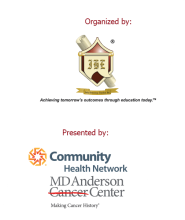Achieving tomorrow’s outcomes through education today.™
Achieving tomorrow’s outcomes through education today.™
Faculty
Partner, Hematology Oncology of Indiana, a Division of American Oncology Network and President and CEO, Indy Hematology Education Inc. Clinical Professor, Marian University College of Osteopathic Medicine (Indianapolis, Indiana)

Ruemu E. Birhiray, MD is an attending physician in medical oncology, hematology, and hematopoietic stem cell transplantation at Hematology-Oncology of Indiana, and at St. Vincent Hospital in Indianapolis, Indiana. After completing his internal medicine residency at Columbus Hospital in Chicago where he also served as Chief Medical Resident in 1994, he was a postgraduate fellow in bone marrow transplant at Johns Hopkins University in Baltimore and in medical oncology at the National Cancer Institute, National Institutes of Health in Bethesda, Maryland where his research included gene therapy and adoptive cellular immunotherapy strategies in bone marrow transplantation. Dr. Birhiray’s professional experience has also included serving as an attending physician, and Director of bone marrow transplantation and a member of Marshfield Clinic, Wisconsin and a Clinical Assistant Professor at the University of Wisconsin from 1998 to 2001. Additionally Dr. Birhiray was appointed an Associate Professor of bone marrow transplantation at Rush University, Chicago, Illinois in 2001, prior to joining Hematology Oncology of Indiana. Subsequently, Dr. Birhiray, served as and director of Bone Marrow Transplantation and Institutional Principal Investigator for the National Surgical Adjuvant Breast and Bowel Project of the National Cancer Institute at St. Vincent’s Hospital, Indianapolis. Currently, he is also, Clinical Professor, Marian University School of Osteopathic Medicine, Indianapolis, Indiana, and an Editorial Board Member of The Journal of Blood Transfusion and Hematopathology. Projects for which Dr. Birhiray is principal investigator include reduced intensity allogeneic transplantation in hematologic malignancies, and a trial of Interferon A, CHOP, and rituximab therapy in advanced-stage follicular lymphoma, and neoadjuvant chemotherapy for breast cancer. Additional collaborations have included major phase III clinical trials. Additionally Dr. Birhiray founded the Clinical research program at Hematology Oncology of Indiana. His awards include, “Intern of the year” from Columbus Hospital, Hope award from the Indiana Wellness community and named “best physician” by the Indianapolis monthly magazine and “top doctor” by Castle Connelly. In 2002, Dr. Birhiray founded and has served as Chair of the annual “Indy Hematology Review”, a nationally respected program providing education for hematologists and oncologists nationally and regionally, and he is also President and CEO of Indy Hematology Education, Inc. A member of the American Society of Clinical Oncology, the American Society of Hematology, and the American Medical Association, Dr Birhiray has published in the Journal of Clinical Oncology, Leukemia, Gene Therapy and Therapeutic Apheresis, Journal of Blood Transfusion and Hematopathology, Human Immunology, Familial Cancer, Annals of Pharmacotherapy, American Journal of Health System Pharmacists, Pharmacotherapy, in addition to multiple abstracts. Dr. Birhiray is married to Donna Marie (nee Baynard) since 1995, and they are blessed with 3 children, a daughter, Maya, born in 1999, and a son, Dirin, born in 2003, and an older daughter Meaghan who was born in 1990.
Vice President, Indy Hematology Education, Inc.
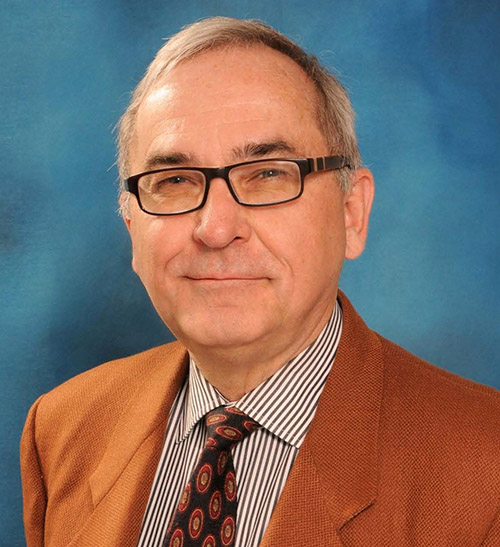
Regional President & CEO, Ascension Michigan – Metro West Region and President, Ascension Medical Group (MI) and Clinical Professor of Medicine at Michigan State University College of Human Medicine. Dr. Wiemann is a medical oncologist and Co-Founder of the Indy Hematology Review. While in Indianapolis, he held several leadership positions at St. Vincent Hospital and Health Center, including Medical Director of Oncology, Chief Medical Officer, and Interim President.
Outpatient Senior Oncology Social Worker, IU Health Central Indiana Cancer Center

Erin Abney, MSW, LCSW is a recipient of the IU Health 2024 Partner in Care award. Erin was nominated by her peers for demonstrating exemplary contributions to patient care and teamwork. Erin completed her graduate degree at the University of Indianapolis and was a member of the Community Behavioral Health Academy with a focus in mental health and substance use disorders. Erin currently works for the IU Health Central Indiana Cancer Centers as an outpatient senior oncology social worker. Erin’s focus is to provide resources, support and advocacy for patients struggling with hematology and oncology disease states. Erin has additional knowledge and experience in crisis intervention, domestic violence advocacy and emergency room social work.
Kraft Family Professor of Medicine at Harvard Medical School, as well as Director of the Jerome Lipper Multiple Myeloma Center at Dana-Farber Cancer Institute (Boston, MA)
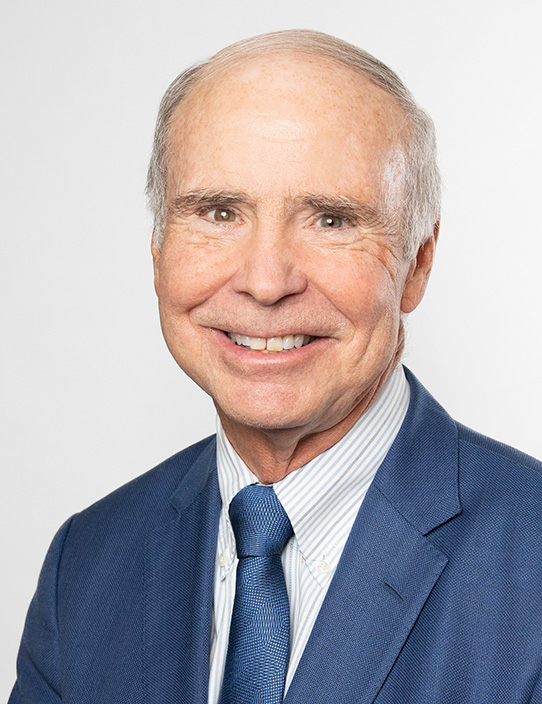
Dr. Ken Anderson is the Kraft Family Professor of Medicine at Harvard Medical School, as well as Director of the Jerome Lipper Multiple Myeloma Center at Dana-Farber Cancer Institute. He trained in internal medicine at Johns Hopkins Hospital, and then completed hematology, medical oncology, and tumor immunology training at the Dana-Farber Cancer Institute. He is a Doris Duke Distinguished Clinical Research Scientist and American Cancer Society Clinical Research Professor.
Over the last four decades, he has developed laboratory and animal models of multiple myeloma in its microenvironment which have allowed for both identification of novel targets and validation of novel targeted and immune therapies. He has then led efforts to rapidly translate these studies to clinical trials culminating in FDA approval of multiple novel targeted therapies, which have transformed the treatment paradigm and markedly improved patient outcome.
He has also trained generations of researchers and caregivers who are now leading myeloma centers internationally. He has received the American Society of Hematology William Dameshek Prize, the American Association for Cancer Research Joseph H. Burchenal Award, the American Society of Clinical Oncology David A. Karnofsky Award, and the Harvard Medical School Warren Alpert Prize.
He is also recipient of the Robert A. Kyle Lifetime Achievement Award from the International Myeloma Foundation and the Waldenstrom Award at the International Myeloma Workshop. He is a Fellow of the American Association for Cancer Research Academy and the American Society of Clinical Oncology, a member of the National Academy of Medicine as well as Royal College of Physicians and Pathologists, and past President of the International Myeloma Society and American Society of Hematology.
Dorotha W. and Grant L. Sundquist Professor in Hematologic Malignancies Research
Mayo Clinic
(Rochester, MN)
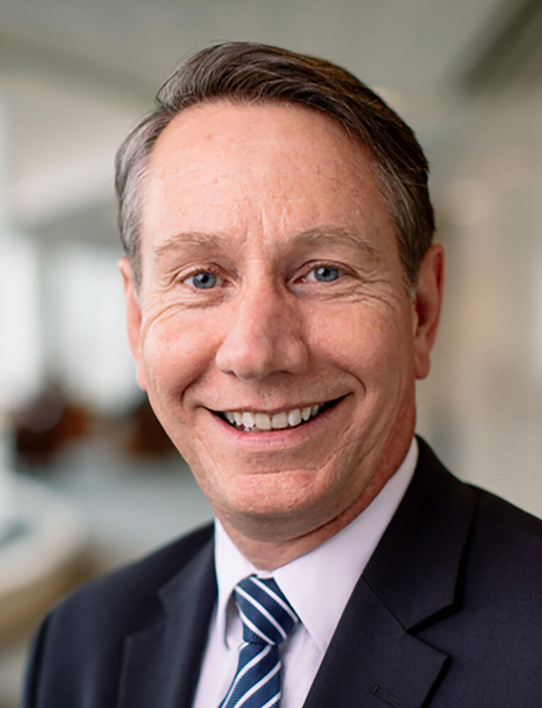
Stephen M. Ansell, MD, PhD, is a consultant in the Division of Hematology, Department of Internal Medicine at Mayo Clinic in Minnesota. Dr. Ansell currently serves as chair of the Division of Hematology and the Enterprise Deputy Director of the Mayo Clinic Cancer Center. He joined the staff of Mayo Clinic in 1999 and holds the academic rank of Professor of Medicine, Mayo Clinic College of Medicine and Science.
Dr. Ansell earned his MB, ChB, and PhD degrees at University of Pretoria in Pretoria, South Africa, where he also completed an internship in internal medicine and surgery, a residency in internal medicine, and a fellowship in medical oncology.
Dr. Ansell continued his education at University of the Witwatersrand in Johannesburg where he was a registrar in internal medicine. He then came to the United States and completed a residency in internal medicine and then a fellowship in hematology/oncology at Mayo Clinic. Dr. Ansell’s research focuses on investigating the phenotype and activity of intratumoral T-cells and developing strategies to modulate the immune function in lymphomas.
Johns Hopkins Family Professor of Medicine and Oncology, Director, Division of Hematology Johns Hopkins University School of Medicine (Baltimore, MD)
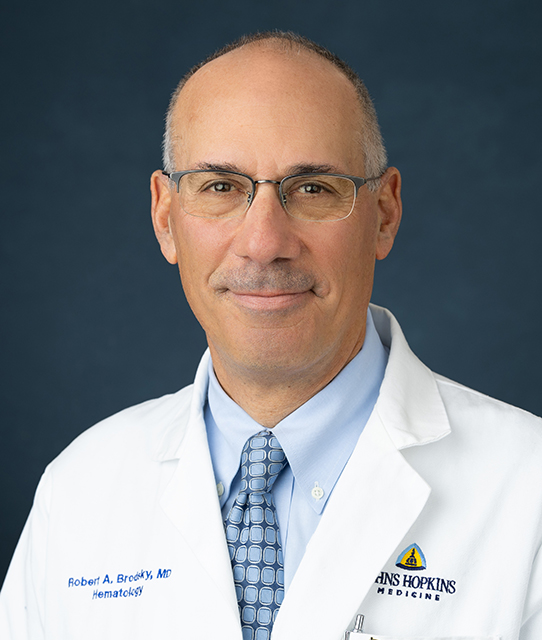
Dr. Brodsky is the Johns Hopkins Family Professor of Medicine and Oncology, and a member of the Johns Hopkins Kimmel Cancer Center. He also serves as the Director of the Division of Hematology and the T32 Training Program.
Dr. Brodsky received his medical degree from Hahnemann University. He completed his residency in Internal Medicine at Vanderbilt University School of Medicine and his fellowship training in hematology at the National Institutes of Health and in oncology at Johns Hopkins University.
Dr. Brodsky’s clinical and academic interests relate to bone marrow failure disorders, hemolytic anemias, and complement. He and his colleagues performed the first successful half matched bone marrow transplant worldwide for sickle cell disease in 2007.
He is on the editorial board for Blood, is a Section Editor for UpToDate. He is on the Executive Committee of the American Society of Hematology (ASH) and serves as President for ASH.
Chair Department of Internal Medicine, University of Cincinnati (Cincinnati, OH)

John Byrd, MD, is an internationally known researcher and clinical specialist in leukemia and other hematologic malignancies. He currently is the Chair of the Department of Internal Medicine at the University of Cincinnati. He holds the Gordon and Helen Hughes Taylor Chair. Outside of his academic roles, Dr. Byrd is a principal and Chief Medical Officer of Beat AML, an LLC of the Leukemia and Lymphoma Society. The Beat AML study has brought together multiple industry, academic, and governmental stakeholders to move precision medicine in AML forward in the United States.
Dr. Byrd received his medical degree from the University of Arkansas for Medical Sciences. His education continued in internal medicine and hematology and oncology at Walter Reed Army Medical Center and Johns Hopkins University before moving to Columbus to join the faculty at Ohio State where he developed an internationally recognized blood cancer program and was the founding director of the Division of Hematology. He moved to the University of Cincinnati in 2021 as Chairman of Internal Medicine and to contribute to building an NCI designated cancer center. Dr. Byrd runs a highly translational laboratory and early drug development program focused on CLL and new therapeutics in hematologic malignancies. He has been part of the successful development of multiple therapeutics in blood cancers, most notably the Bruton’s Tyrosine kinase inhibitors (ibrutinib and acalabrutinib). He has over 650 publications, has been continuously funded by the NIH for over two decades, and has received multiple awards for his contribution to drug development in blood cancers. Dr. Byrd also currently chairs or serves as a member on multiple pharmaceutical company scientific advisory boards and has founded two companies stemming from his work.
Scientific Director, National Heart, Lung, and Blood Institute (NHLBI) at the National Institutes of Health (NIH) (Bethesda, MD)
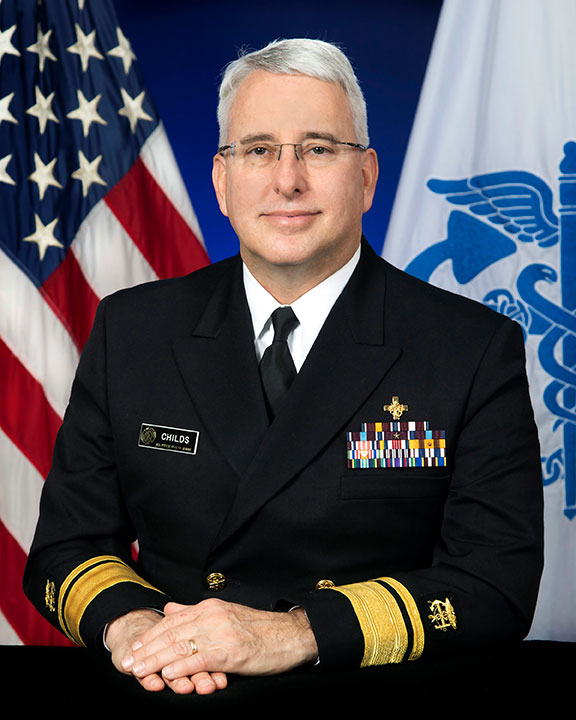
Dr. Childs directs and provides oversight of the intramural research program of the NHLBI, ensuring resources are allocated appropriately to achieve the research mission of the NHLBI, setting overarching research priorities in partnership with the Institute Director and overseeing the recruitment of a talented and diverse faculty to conduct high-quality and ethical research ranging from basic molecular to clinical/translational research.
Hematologist and Oncologist, Mayo Clinic (Rochester MN)

Dr Joselle Cook is a hematologist and oncologist, specializing in Myeloma, Amyloid and Plasma cell disorders at the Mayo Clinic in Rochester Minnesota. She is an Assistant Professor of Medicine at Mayo Clinic Rochester in the Division of Hematology. Her research focuses on determining the prevalence and biologic drivers of precursor plasma cell disorders, particularly in understudied and high-risk populations. She initiated the MAGIC study which is the first ever screening study of monoclonal gammopathies in people across the African Diaspora. She also is a researcher in novel immunotherapeutics, specifically oncolytic virotherapy for hematologic malignancies.
Clinical Nurse Specialist, Parkview Health (Fort Wayne, IN)

Sarah Cook began her career in oncology in 2012 as a floor nurse and has been oncology certified since 2015. Since then, she has worked in multiple areas of oncology care including inpatient, outpatient, navigation, administration, and leadership. She received her master’s as a Clinical Nurse Specialist in 2022 and continues to work in oncology care. Her passion is focused on the Adolescent and Young Adult Population, improving their access to necessary ancillary services and support, and improving their overall outcomes.
Ludwig Maximilian University of Munich (Munich, Germany)

Martin Dreyling is Professor of Medicine and head of the lymphoma programme at the Department of Medicine III, LMU Hospital Munich. He studied at the Universities of Düsseldorf, Giessen, Tübingen and Würzburg, and completed his clinical training at the Universities of Bonn, Münster, Göttingen and Munich. In addition, he was a visiting scientist at the University of Chicago.
His scientific focus is on the molecular basis of malignant transformation, cell cycle dysregulation and secondary genetic alterations as well as biological prognostic factors in malignant lymphoma. He is also interested in innovative therapeutic approaches, including molecular targeted approaches like inhibitors of the B-cell receptor pathway and immunological approaches.
Prof. Dreyling is coordinator of the European MCL Network and past president of the German Lymphoma Alliance as well as EHA executive board member. He has co-authored numerous scientific papers and abstracts in international peer-reviewed journals.
Director of Pharmacy, Precision Genomics Oncology, Indiana University Simon Comprehensive Cancer Center (IUSCCC) (Indianapolis, IN)

Christopher Fausel, PharmD, MHA, BCOP is the Director of Pharmacy for Precision Genomics Oncology at the Indiana University Simon Comprehensive Cancer Center (IUSCCC) in Indianapolis, Indiana where he coordinates the institutional molecular tumor board. He graduated from Albany College of Pharmacy with a BS Pharmacy in 1993 and Pharm.D. in 1996 and completed residency training at the Stratton VA Medical Center in Albany, NY.
In addition, he is the Chairman of the Board of the Hoosier Cancer Research Network, a non-profit organization that conducts clinical trials and translational research in cancer and serves as the administrative headquarters of the Big Ten Cancer Research Consortium.
He is the founding Residency Program Director for the PGY2 Oncology Pharmacy Residency and has previously served as a clinical specialist in hematology/oncology/stem cell transplant and as a clinical manager for oncology pharmacy for over 20 years at Indiana University Health. He serves as Chair for the Indiana University biomedical IRB. He is a long-standing member of ASHP, ASCO and HOPA.
The University of Texas MD Anderson Cancer Center, Division Head of Cancer Medicine (Houston, TX)

Christopher Flowers, MD, joined The University of Texas MD Anderson Cancer Center in August 2019 as Department Chair of Lymphoma/Myeloma and was appointed Division Head of Cancer Medicine in
September 2023. Prior to MD Anderson, he was professor of Hematology and Oncology with a joint appointment in Biomedical Informatics at Emory University School of Medicine in Atlanta. During his tenure there, he served the Winship Cancer Institute as director of the Emory Healthcare-Lymphoma Program for 13 years and as scientific director of Research Informatics for four years. An internationally recognized expert in lymphoma clinical care, epidemiology and outcomes research, Dr. Flowers is an innovator who has a passion for facilitating new drug development. He is an active clinician who conducts clinical research involving cancer outcomes, cancer informatics, and phase 1/2 trials, focusing on the clinical development of novel therapeutics for B-cell lymphomas. His broader research interests include patient-oriented research in lymphoma and computer microsimulation models and cost-effectiveness analyses aimed at developing strategies to individualize care for cancer patients and improve systems of care. His work has resulted in >200 peer-reviewed publications. He has received peer-reviewed funding from foundations and the NIH including leading two U01 awards and two multi-institutional team science grants.
Dr. Flowers earned his medical degree from Stanford University School of Medicine where he also completed an MSc in Medical Informatics to gain expertise developing information systems to improve clinical research. He completed his internship and residency in Internal Medicine from the University of Washington in Seattle, where he continued his research training as a fellow in the Robert Wood Johnson Clinical Scholars Program and earned a second master’s degree in Pharmaceutical Outcomes Research and Policy. During this time, he also completed his fellowship in Medical Oncology from the Fred Hutchinson Cancer Research Center. Dr. Flowers has served in many capacities for national professional societies and was elected to membership in the American Society of Clinical Investigation. In 2018, he was named a Fellow of the American Society of Clinical Oncology (ASCO) and served as chair of both the ASCO guidelines on management of febrile neutropenia and ASCO health disparities committees.
Nurse practitioner, Hematology Oncology of Indiana, a Division of American Oncology Network (Indianapolis, IN)
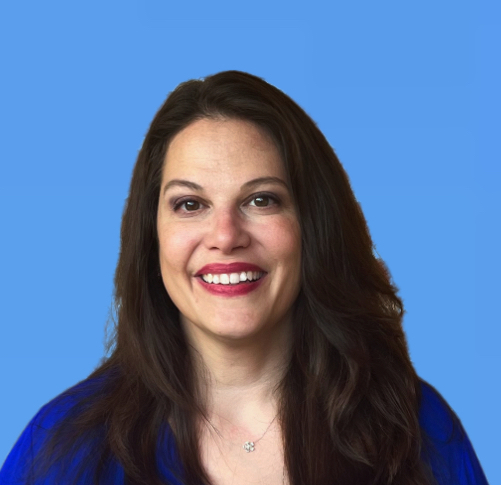
Sandra G. Garofalo MS, APRN, AOCNP – Nurse practitioner, Hematology Oncology of Indiana, a Division of American Oncology Network, Indianapolis IN. She has over 18 years of experience in the field of oncology. She completed her bachelors of science in nursing as well as her masters of science at The Ohio State University. She started her nursing career in hematopoietic stem cell transplant at The Medical University of South Carolina. Since that time, she has had extensive experience in hematological and solid tumor malignancies as well as benign hematology at The James Cancer Center at The Ohio State University. She currently works as a nurse practitioner at Hematology Oncology of Indiana and St. Vincent’s Hospital in Indianapolis.
Roland Seidler Jr. Professor, Art of Medicine Chair Emeritus, Department of Internal Medicine, Mayo Clinic (Rochester, MN)
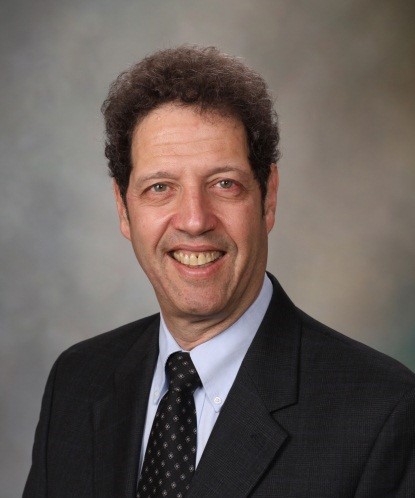
Morie Gertz, MD, MACP is a Master of the American College of Physicians. His undergraduate degree was awarded with highest distinction from Northwestern University graduating Phi Beta Kappa.
Senior Research Physician, Cellular and Molecular Therapeutics Branch, National Heart, Lung, and Blood Institute (NHLBI) (Bethesda, MD)

Matthew Hsieh, MD is a Senior Research Physician in the Cellular and Molecular Therapeutics Branch of the National Heart, Lung, and Blood Institute (NHLBI) in Bethesda, Maryland. He is an active investigator in several intramural and extramural clinical trials for sickle cell disease, including hematopoietic cell transplantation (HCT) from matched related donors, industry sponsored clinical trials for gene therapy, late effects of HCT, and haploidentical transplantation. He is on the faculty for the combined NHLBI/NCI hematology and oncology fellowship. His expertise and research interests include stem cell mobilization, organ dysfunction related to sickle and beta-globin disorders, iron overload, neutrophil disorders, and HCT conditioning regimens.
Professor and Chair, Department of Leukemia, The University of Texas MD Anderson Cancer Center, Samsung Distinguished Leukemia Chair in Cancer Medicine (Austin, TX)

Dr. Kantarjian is professor and chair of the Department of Leukemia at The University of Texas MD Anderson Cancer Center, where he is also the Samsung Distinguished Leukemia Chair in Cancer Medicine. He is also a non-resident fellow in health policy at the Rice University Baker Institute. Dr. Kantarjian has received several prestigious honors and awards including the 37th Jeffrey A Gottlieb Memorial Award (2012), the John Mendelsohn Lifetime Scientific Achievement Award (2008), the Joseph H. Burchenal Memorial Award (2013),the Charles A. LeMaistre, M.D. Outstanding Achievement Award in Cancer (2014), and America’s Top Doctors, Castle Connolly Medical (2003-present). He was also selected the top Castle Connolly National Physician of the Year Award for Lifetime Achievement (2014) and the ASCO David A. Karnofsky Memorial Award for lifelong contributions to leukemia research and patient care (2023).Dr. Kantarjian’s research focuses on translational-clinical developmental therapeutics in leukemia. In the past four decades, he has made several contributions that improved prognosis and survival in patients with chronic myeloid leukemia (tyrosine kinase inhibitors, e.g. imatinib, dasatinib, nilotinib, bosutinib which improved the 10-year survival from 20% to 90%), in acute lymphocytic leukemia (HPER-CVAD regimen and its derivatives which improved cure rates from 20% to 60+%), the discovery of decitabine for the treatment of myelodysplastic syndrome, and of clofarabine for the treatment of leukemias, among others. His research and collaborations were the basis for the FDA approvals of over 20 drugs in leukemia. He is an author on over 2,000 peer-reviewed publications.
Professor of Medicine and Pathology, Attending Physician, Division of Hematology-Oncology, Georgetown University Medical Center (Washington, DC)
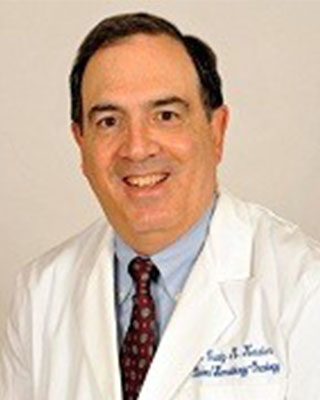
Craig Kessler, MD also serves as the Director of the Division of Coagulation in the Department of Laboratory Medicine and is the Director of the Therapeutic and Cellular Apheresis Unit. With a distinguished career beginning in 1973, Dr Kessler earned his medical degree from Tulane University School of Medicine in New Orleans, Louisiana. He remained in New Orleans to complete his medical internship and residency before moving to Baltimore, Maryland, in 1976 to assume a Fellowship in Special Hematology at Johns Hopkins Hospital.
Vice Chair of the Malignant Hematology Department and the Head of the Leukemia and MDS Section at the Moffitt Cancer Center (Tampa, FL)
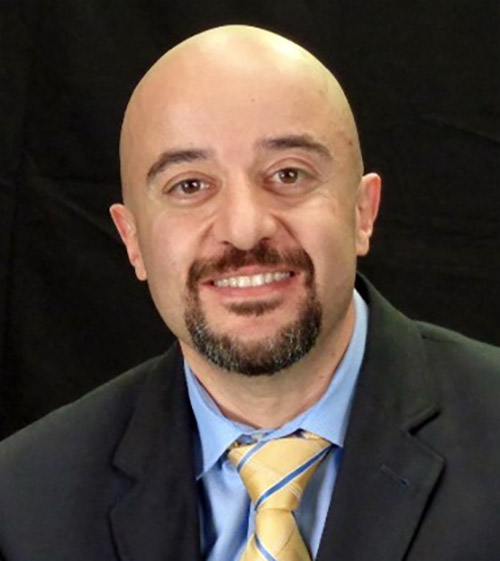
He is a senior Member of the Malignant Hematology and Experimental Therapeutics Program at the Moffitt Cancer Center, and Professor in Medicine & Oncologic Sciences at the College of Medicine, at the University of South Florida in Tampa, Florida.
After earning a medical degree in 1996 from the Jordan University School of Medicine, Dr. Komrokji completed an internship and residency at Case Western University, St. Vincent Program. He then completed a fellowship at Strong Memorial Hospital, University of Rochester, in Hematology/Oncology and Hematopoietic Stem Cell Transplantation.
Dr Komrokji is an expert in myeloid neoplasms where he led several clinical trials and lectured worldwide. His work paved the FDA approval for luspatercept in myelodysplastic syndromes and for Pacritinib in myelofibrosis.
He has authored or co-authored more than 325 peer-reviewed manuscripts, 20 book chapters, and more than 700 abstracts in Hematologic Malignancies. He served as member on the MDS Panel of the National Comprehensive Cancer Network (NCCN) and is currently a member of the NIH MDS natural history study steering committee and aplastic anemia and MDS foundation board of directors. He was member of the editorial board for Journal of Clinical Oncology (JCO). He is peer reviewer for several medical journals including Blood Journal, JCO and Leukemia Journal.
Dr. Komrokji’s research interests are in Phase I and II Clinical Trials, and in the outcome research in hematologic malignancies with focus on myeloid neoplasms. His clinical interests are Myelodysplastic syndromes (MDS), Acute Myeloid Leukemias, and Myeloproliferative neoplasms.
Professor of Medicine in Hematology/Oncology, and Member of the University of Chicago Comprehensive Cancer Center (Chicago, IL)
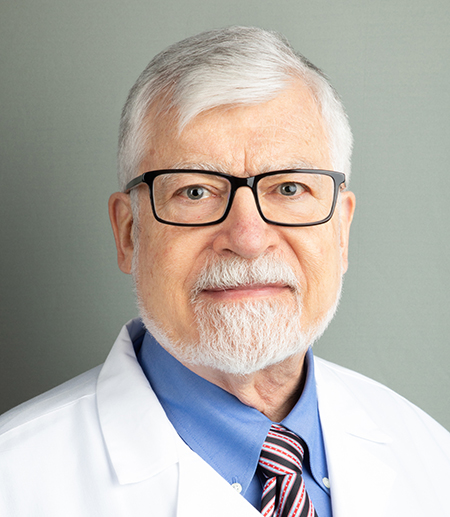
Dr. Richard Larson is Professor of Medicine in the Section of Hematology/Oncology at the University of Chicago. He received his medical degree from the Stanford University School of Medicine in 1977, and completed his postdoctoral training in Internal Medicine, Hematology, and Medical Oncology at the University of Chicago. He has been a member of the faculty in the Section of Hematology/Oncology and the Comprehensive Cancer Center, University of Chicago since 1983.
H. Lee Moffitt Cancer Center & Research Institute (Tampa, FL)

Dr. Frederick L. Locke is a transplant physician, cellular therapist, and translational investigator dedicated to discovering and implementing ways to use the immune system against lymphoid malignancies. He is Chair and a Senior Member of the Department of Blood and Marrow Transplant and Cellular Immunotherapy, and Co-Leader of the Immuno-Oncology Program, at Moffitt Cancer Center. As Program Leader for Cellular Immunotherapy, Dr. Locke assembled the team of faculty and staff focused on Cellular Immunotherapy, currently treating ~300 CAR-T patients per year. He also serves in various national and international capacities focused on effective proliferation of Cellular Therapies against cancer, including the Cellular Therapies Committee for the American Society for Transplantation and Cellular Therapy. Dr. Locke has extensive experience in the design and conduct of CAR-T trials and correlative analyses. His translational research laboratory is seeking to better understand why CAR-T does not always work while he also passionately seeks ways to increase availability and access to CAR-T. Dr. Locke is lead author in numerous high impact publications, including articles in the New England Journal of Medicine, Nature Medicine, Lancet Oncology, Journal of Clinical Oncology and Blood.
Associate Professor in the Division of Hematology/Oncology at the University of Nebraska Medical Center, Associate Vice Chair of Research for the Department of Internal Medicine, Medical Director of the Clinical Research Center (CRC), and Medical Director of Cellular Therapies.

He received his medical degree from Des Moines University in 2006. Dr. Lunning completed his internal medicine residency at UNMC where he served as Chief Medical Resident. He completed his Hematology/Oncology fellowship and served as the Hematology Chief Fellow at Memorial Sloan-Kettering Cancer Center. Dr. Lunning returned to UNMC in 2013 and has been active in clinic research, research mentoring, education, and patient care. Dr. Lunning was the recipient of the Distinguish Scientist Award in 2019.
Dr. Lunning has served on several National Comprehensive Cancer Network’s guidelines committees including the Immunotherapy Toxicity & T-cell lymphoma panels. He has served as an invited member of ASCO’s Cancer Education Committee on the Non-Hodgkin Lymphoma. He is the co-organizer of the Pan Pacific Lymphoma Conference.
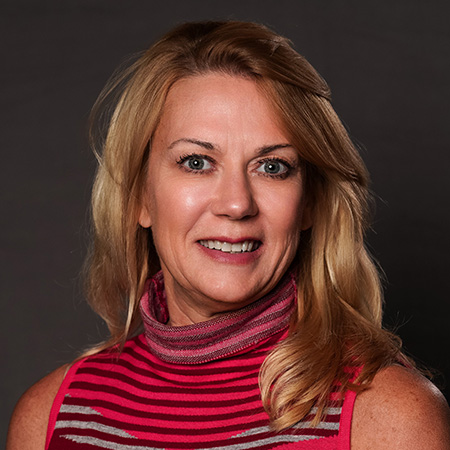
Kristi K Orbaugh MSN, RNP, AOCN has spent her entire career in the oncology field.
She received her undergraduate degree from Purdue University and her master’s
degree from Indiana University Purdue University of Indianapolis. She works at
Community Hospital Cancer Center North which is an affiliate of MD Anderson as a
nurse practitioner. She has published several oncology related articles. She has
presented locally, regionally, nationally and internationally. Kristi is passionate about
oncology and enjoys presenting and providing oncology education on regional, national
and international level.
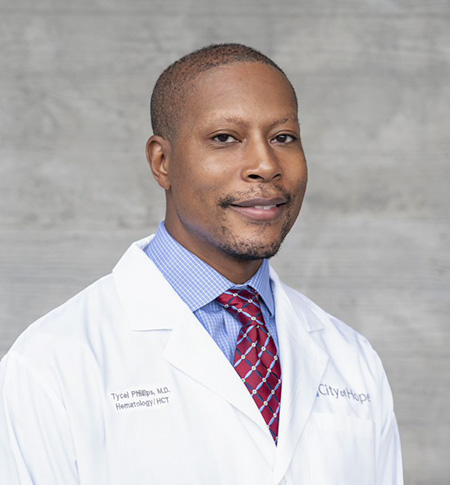
Professor of Pharmacy Practice, College of Pharmacy and Health Sciences, Butler University Clinical Pharmacy Specialist in Hematology/Oncology, Franciscan Physician Network Oncology/Hematology Specialist (Indianapolis, IN)
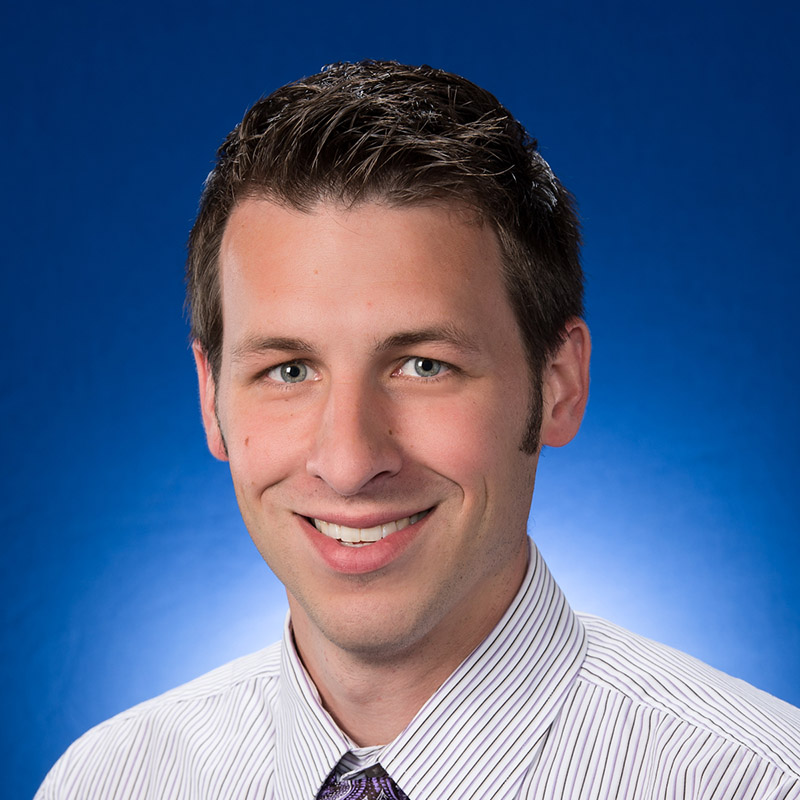
David Reeves, PharmD, BCOP is a professor of pharmacy practice for the College of Pharmacy and Health Sciences at Butler University and clinical pharmacy specialist in hematology/oncology at Franciscan Physician Network Oncology/Hematology Specialists in Indianapolis, IN.
Clinical Director, Leukemia Service, Associate Chief of Clinical Affairs, Division of Hematology, University of Colorado School of Medicine (Aurora, CO)

Dr. Pollyea attended Indiana University where he received a BS in Biology, and then received his medical degree from the University of Chicago Pritzker School of Medicine. He completed an internal medicine residency at the University of Chicago Hospital and then served as Chief Medical Resident at Cook County Hospital in Chicago. He completed a medical oncology and hematology fellowship at Stanford University. He is currently the Clinical Director of Leukemia Services and Associate Chief of Clinical Affairs in the Division of Hematology at the University of Colorado School of Medicine, where he holds the Robert H. Allen MD Chair in Hematology Research.
His work focuses on improving our understanding of the nature of leukemia stem cells, and developing drugs that target this population to potentially allow for curative therapies. Dr. Pollyea has served as the Principal Investigator for multiple early-phase and investigator-initiated clinical trials and has received funding for his research from the National Cancer Institute/NIH, American Society of Hematology, the American Society of Clinical Oncology, and the Leukemia and Lymphoma Society. He is currently Chair of the NCCN Guidelines on Acute Myeloid Leukemia.
Sonali M. Smith, MD, FASCO
Elwood V. Jensen Professor of Medicine, Section Chief of Hematology/Oncology, Co-Leader of the Cancer Service Line, and Co-Director of the Lymphoma Program at the University of Chicago in the Department of Medicine
e (Chicago, IL)

Dr. Sonali M. Smith is the Elwood V. Jensen Professor of Medicine, Section Chief of Hematology/Oncology, Co-Leader of the Cancer Service Line, and Co-Director of the Lymphoma Program at the University of Chicago in the Department of Medicine. She is a clinical investigator in lymphoma and a clinical expert in Hodgkin and non-Hodgkin lymphomas.
As a faculty member at the University of Chicago since 2001, she has over 200 publications in peer-reviewed journals and has written over 25 review articles on lymphoid malignancies. She is particularly interested in targeted agents and pathway inhibitors and has first and senior author publications through cooperative group trials and investigator-initiated trials.
She has had many active leadership roles including Vice-Chair of the SWOG Lymphoma Committee since 2014, Chair of the Lymphoma Research Foundation Scientific Advisory Board, immediate past-chair of the ASCO 2022 Scientific Program Committee, and a founding member of the international Women in Lymphoma group. She has given educational lectures at ASH, ASCO, ASTRO, and the International Conference for Malignant Lymphomas (ICML) and is considered a thought leader in the field. She has won numerous teaching awards, including the ASCO Excellence in Education Award, and considers mentorship a key aspect of her career.
Lunder Family Chair in Leukemia and Chief of Staff at Dana-Farber Cancer Institute, Director of Translational Research for the Adult Leukemia Program, at DFCI, and Professor of Medicine at Harvard Medical School (Boston, MA)
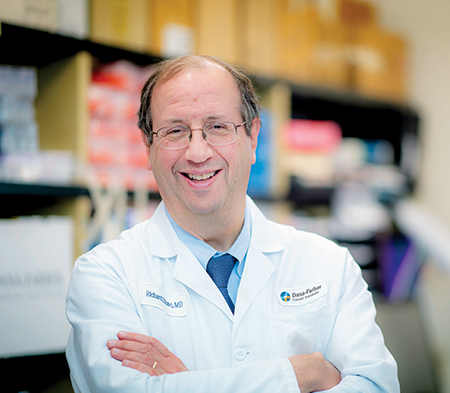
Richard Stone, MD, is the Lunder Family Chair in Leukemia and Chief of Staff at Dana-Farber Cancer Institute. He is also Director of Translational Research for the Adult Leukemia Program, at DFCI, and Professor of Medicine at Harvard Medical School. Dr. Stone is nationally recognized for translational and clinical research in blood and bone marrow malignancies including acute leukemia, myeloproliferative disorders, and myelodysplastic syndrome (MDS). He has had a significant leadership role in the development of at least five recently approved agents for the treatment of acute myeloid leukemia (AML).
In addition to his work at Dana-Farber, Dr. Stone is a Vice Chair of the National Comprehensive Cancer Network (NCCN) MDS panel and is also a member of the NCCN AML panel. He previously served as the Chair of the Alliance Leukemia Committee, Chair of the Medical Advisory Board of the Aplastic Anemia and MDS International Foundation, and the Chair of the ABIM Oncology Board.
Dr. Stone has participated extensively in teaching medical students, residents, and fellows, as well as graduate medical education courses on leukemia and related disorders. He is the author of many academic papers that have been published in the New England Journal of Medicine, Blood, Leukemia as well as numerous other journals. He has also served on the editorial boards of Leukemia Research, Blood and Journal of Clinical Oncology.
Dr. Stone earned his medical degree from Harvard Medical School in 1981. He
completed his internal medicine residency training and served as Chief Medical Resident at Brigham and Women’s Hospital. He completed his hematology-oncology fellowship at Dana-Farber.
Barbara Woodward Lips II Professor of Medicine at the Mayo Clinic (Rochester, MN)
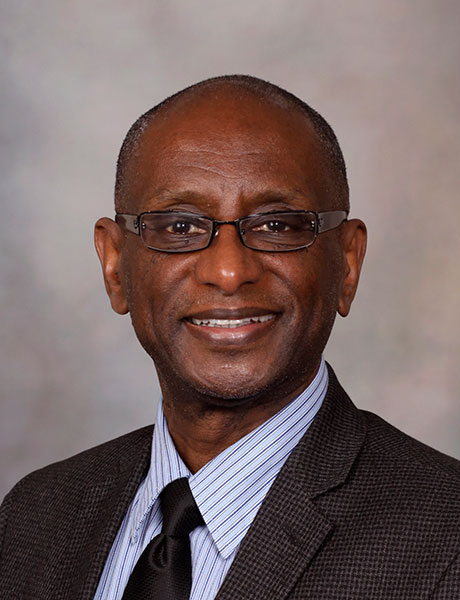
Dr. Tefferi’s research interest is primarily focused on myeloid neoplasms including acute myeloid
leukemia and chronic myeloid neoplasms. His web of science core collection publications, as of 9/23/2024, number over 1800 with an H-index of 133. He has participated in hundreds of invited lectureships including service as core faculty for GW, MDACC and Harvard annual board review courses.
Director of the Bing Center for Waldenstrom’s Macroglobulinemia (WM) at DFCI and a Professor of Medicine at HMS (Boston, MA)

Professor Treon is the Director of the Bing Center for Waldenstrom’s Macroglobulinemia (WM) at DFCI and a Professor of Medicine at HMS. Using whole-genome sequencing, his laboratory was the first to clarify the genetic basis of WM by identifying MYD88 (L265P) as a highly recurring somatic mutation in 95% of WM patients. This finding has permitted differentiation of WM from other B-cell malignancies that share overlapping characteristics, and was adopted in WHO and NCCN guidelines as a supportive diagnostic marker for WM. His lab also identified the CXCR4 mutation found in 40% of WM patients. Professor Treon’s lab has focused on the development of novel agents to target both mutated MYD88 and CXCR4. His lab was the first to report that Bruton’s tyrosine kinase (BTK) was a downstream target of MYD88 L265P mutation, in a study that enabled a clinical trial that led to the investigation, adoption and approval of BTK-inhibitors for WM.
Professor Treon has also made contributions to the investigation and advancement of most novel agents used for the treatment of WM. He served as the PI or co-investigator for prospective clinical trials which included the monoclonal antibodies rituximab and alemtuzumab; the nucleoside analogue fludarabine with rituximab; the immunomodulatory agents thalidomide, lenalidomide, and pomalidomide with rituximab; the proteasome inhibitors bortezomib and carfilzomib alone and with rituximab; the BTK inhibitor ibrutinib and Zanubrutinib, the CXCR4 antagonists ulocuplomab and mavorixafor in combination with ibrutinib; and the BCL-2 inhibitor venetoclax alone and in combination with ibrutinib. These studies enabled inclusion of many of these agents into WM Consensus and NCCN Treatment guidelines. These studies also identified drug toxicities particular for or more pronounced in WM patients, including the IgM flare to rituximab, peripheral neuropathy (3-fold higher) to bortezomib, lenalidomide-related aggravated anemia, late immune thrombocytopenia to alemtuzumab, and secondary malignancies associated with nucleoside analogues that impacted treatment guidelines and led to trials examining alternative treatment strategies.
Professor Treon is also the principal organizer of the International Workshops on WM, a biannual event that brings hundreds of basic science and clinical investigators from around the world. Key consensus recommendations are adopted at these meetings that help guide management and response evaluation of WM patients. Professor Treon was also the chair of the 17th International Workshop on Multiple Myeloma, the largest workshop held to date for this disease. For his efforts, he has received the Robert A. Kyle Award, the Jan Gosta Waldenstrom Lifetime Achievement Award, and was elected a fellow to the American College of Physicians, and the Royal College of Physicians, London UK.
Chief Attending and Member, Myeloma Service Member, Memorial Sloan Kettering Cancer Center, New York, NY. Professor of Clinical Medicine, Weill Cornell Medical College – Cornell University (New York, NY)
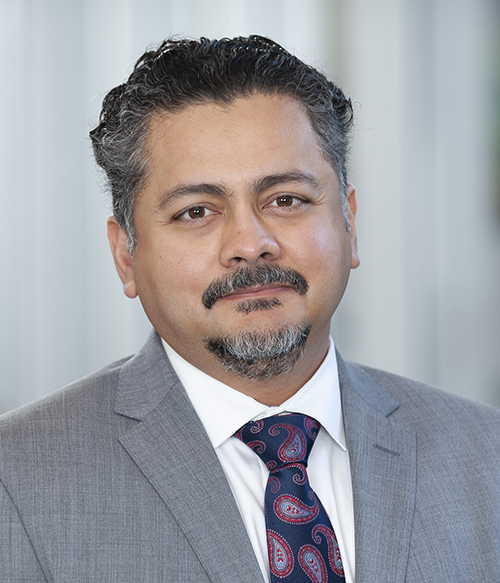
Dr. Saad Zafar Usmani received his medical education at Allama Iqbal Medical College in Lahore, Pakistan. He completed a residency in internal medicine at Sinai-Grace Hospital/Wayne State University in Detroit, Michigan and a fellowship in hematology and oncology at the University of Connecticut Health Center in Farmington, Connecticut. He then joined the Myeloma Institute for Research & Therapy, University of Arkansas for Medical Sciences in Little Rock, AR in 2010 as the Director of Developmental Therapeutics and Assistant Professor of Medicine. He was recruited to the Levine Cancer Institute/Atrium Health in 2013 as the inaugural Division Chief of Plasma Cell Disorders and Director of Clinical Research for Hematologic Malignancies where he built an internationally renowned myeloma program. He was then recruited in 2021 as the Chief of Myeloma Service at MSKCC where he leads a team of 13 investigators focused on multiple myeloma and associated disorders.
Dr. Usmani is board-certified in internal medicine, medical oncology, and hematology. He holds membership and leadership roles on national/international committees, including the International Myeloma Working Group, the ALLIANCE Myeloma Committee (Chair), the American Society of Hematology (ASH), the American Society of Clinical Oncology (ASCO), the American Society of Transplant & Cellular Therapy, and the National Cancer Institute Myeloma Steering Committee. Dr. Usmani has served as the Vice-Chair of the SWOG Myeloma Committee and has served as chair for the ASH Scientific Committee on Plasma Cell Neoplasia, and the ASCO Scientific Committee on Plasma Cell Disorders.
He has received several international awards recognizing his clinical and translational research contributions to the field, including the Celgene Young Investigator Award for Clinical Research, COMY Award for Excellence in Myeloma Research, LLS Scholar in Clinical Research, the International Myeloma Society Bart Barlogie Award for Clinical and Translational Research, and the LLS CDP Achievement Award. Dr. Usmani has authored/co-authored more than 300 peer-reviewed research manuscripts (NEJM, Lancet, JCO, Cancer Cell, Blood, Leukemia, etc.). Active in clinical and translational research, Dr. Usmani has research interests focus on plasma cell disorders—in particular, high-risk multiple myeloma.
Full Professor, Hematology, Head of Hematology Department, University of Florence, AOU Careggi (Florence, Italy)

Full Professor of Hematology and Head of the Hematology Department at the University of Florence and AOU Careggi in Florence, Italy, and the Center for Research and Innovation of Myeloproliferative Neoplasms. He holds various appointments at the university, including director of the Specialty School in Hematology and Director of the Center for High Education “DenoTHE”. His research interests are focused on myeloproliferative neoplasms (MPNs) and molecular genetics of myeloid neoplasia. He serves as cochair of the GIMEMA Foundation Working Party on MPN and is principal investigator of the Italian MyNERVA research alliance on MPN and related myeloid disorders. He sits on the board of the International Working Group for Myelofibrosis Research and Treatment (IWG-MRT), the European LeukemiaNet Work Package 9 for MPN, the European Hematology Association Specialized Working Group on Myeloproliferative Neoplasms and is currently the President of the Italian Society of Experimental Hematology. Dr Vannucchi has authored or co-authored more than 650 peer-reviewed publications, mostly in the field of MPN, and has presented at several national and international meetings. Since 2017, professor Vannucchi has been listed among the Highly Cited Researchers in Clinical Medicine – Web of Science and the 100-top Italian Scientists. He has been attributed the honor of Commander of Merit of the Republic of Italy in 2023 for his scientific achievements.
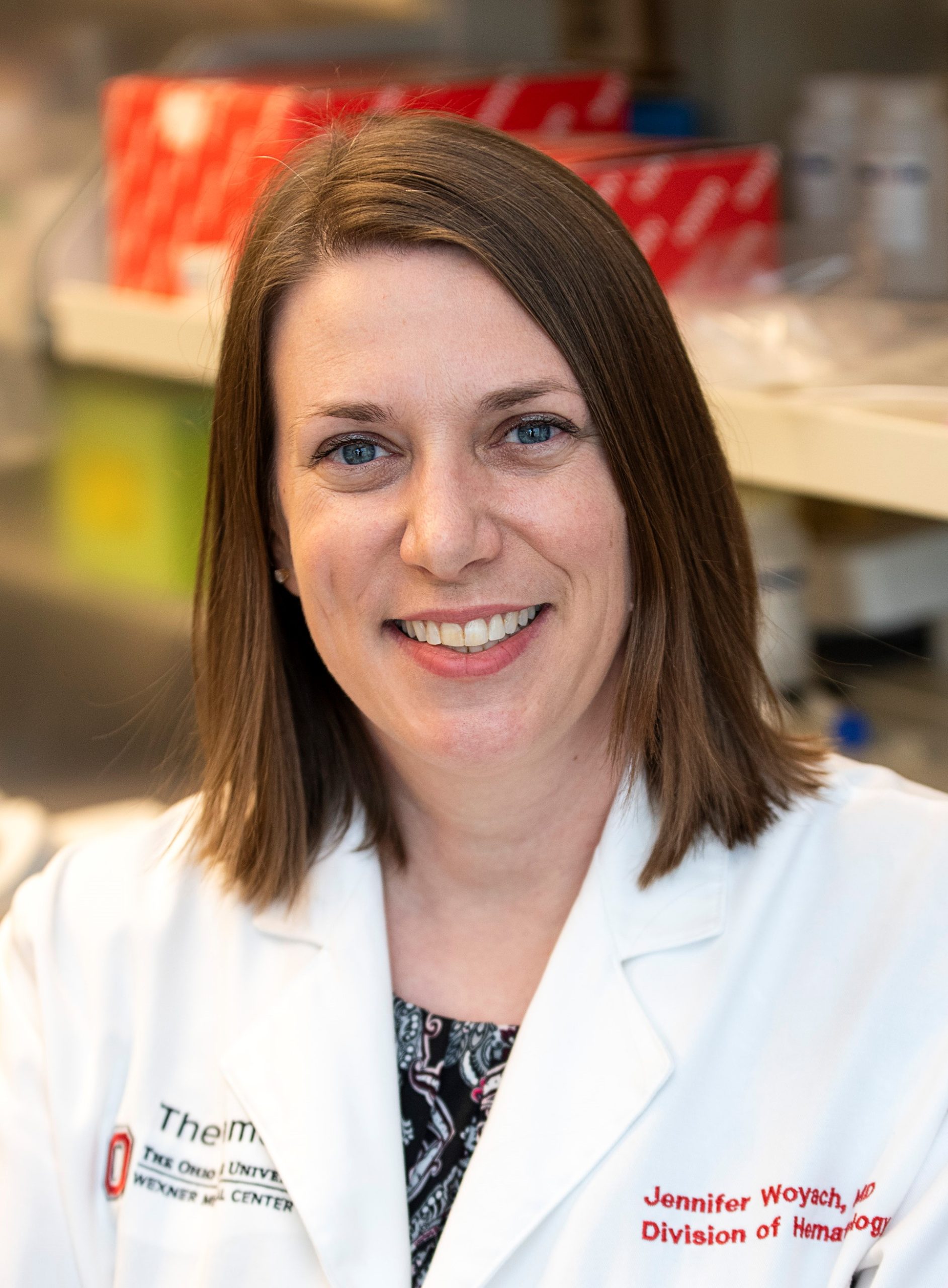 Dr. Jennifer Woyach is a professor in the division of Hematology, the section chair of
Dr. Jennifer Woyach is a professor in the division of Hematology, the section chair ofChronic Lymphocytic Leukemia (CLL), and a physician scientist focused on translational
research in CLL at the Ohio State University. Her laboratory interests include
experimental therapeutics in CLL with a focus on signaling pathways and kinase
inhibition. She has extensive experience studying BTK inhibitors, resistance
mechanisms associated with irreversible BTK inhibitors, and strategies to overcome
resistance.
Chief of the Hematology Branch, National Heart, Lung, and Blood Institute (Bethesda, MD)

Neal Young is Chief of the Hematology Branch of the National Heart, Lung, and Blood Institute. His research interests are normal and aberrant hematopoiesis, autoimmunity in hematology, the genetics and genomics of aplastic anemia and related syndromes, and viral infections of blood forming cells. His career has been wide ranging, from basic molecular biology, virology, immunology, and cell biology to translational research, epidemiology, and pioneering interventional clinical trials. The Hematology Branch clinic is the major American referral center for marrow failure syndromes. Results from his work have deeply informed our understanding of the pathophysiology of human disease and development of effective treatments, for aplastic anemia, paroxysmal nocturnal hemoglobinuria, myelodysplastic syndromes and related diseases. He has published more than 450 original research articles and 100s of reviews and chapters, including many monographs and more than two dozen articles in the New England Journal of Medicine. His trainees are the current leaders and international experts in the field of marrow failure. His accomplishments have been recognized by the American Society of Hematology with the E. Donnall Thomas and Beutler Prizes, and awards such as the Adolfo Storti Award, the Erasmus Prize, and lifetime honorary membership in the Mexican Society for Hematology. For public service, he received the Heyman Service to America Award for civil service and the Vietnam People’s Award for his innovative teaching program in that country. Following a sabbatical term at New College and in collaboration with an Oxford Professor of Philosophy, he has recently published a novel perspective addressing language confusion between authors and editors of scientific journals.
